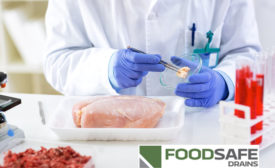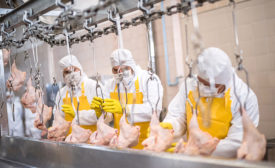Articles by Andrew Lorenz
STATE OF THE INDUSTRY: FOOD SAFETY
Processors must change the perception that the industry doesn’t care about customers and is making and selling unsafe products.
Read More
State of the Industry 2023: Food Safety
Industry doing the work to protect consumers
Consumer education remains crucial to ensure safe food.
Read More
Salmonella is the target
The industry needs to adopt a commonsense approach to controlling it before FSIS feels compelled to enact new regulations.
Read More
2021 Food Safety Report
2021 Food Safety Report: Still king of the mountain...with challenges
Even though the COVID-19 pandemic has pummeled every aspect of business, it could not knock food safety from its perch as meat and poultry processors’ primary focal point in 2020.
Read More
Special Report | State of the Industry 2020
The state of food safety 2020: making sense of the chaos
Read MoreStay ahead of the curve. Unlock a dose of cutting-edge insights.
Receive our premium content directly to your inbox.
SIGN-UP TODAYCopyright ©2025. All Rights Reserved BNP Media.
Design, CMS, Hosting & Web Development :: ePublishing










